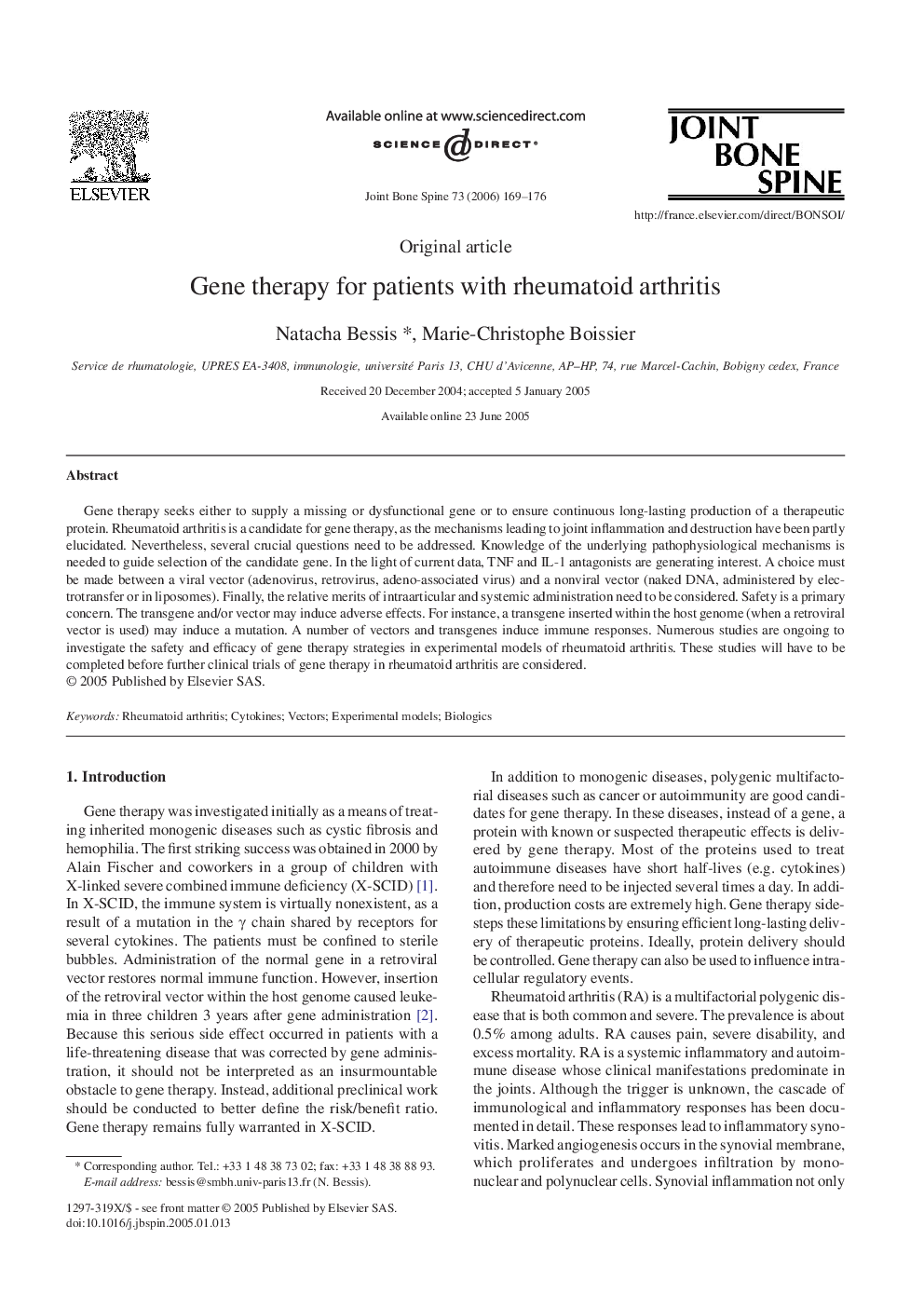| Article ID | Journal | Published Year | Pages | File Type |
|---|---|---|---|---|
| 3367415 | Joint Bone Spine | 2006 | 8 Pages |
Gene therapy seeks either to supply a missing or dysfunctional gene or to ensure continuous long-lasting production of a therapeutic protein. Rheumatoid arthritis is a candidate for gene therapy, as the mechanisms leading to joint inflammation and destruction have been partly elucidated. Nevertheless, several crucial questions need to be addressed. Knowledge of the underlying pathophysiological mechanisms is needed to guide selection of the candidate gene. In the light of current data, TNF and IL-1 antagonists are generating interest. A choice must be made between a viral vector (adenovirus, retrovirus, adeno-associated virus) and a nonviral vector (naked DNA, administered by electrotransfer or in liposomes). Finally, the relative merits of intraarticular and systemic administration need to be considered. Safety is a primary concern. The transgene and/or vector may induce adverse effects. For instance, a transgene inserted within the host genome (when a retroviral vector is used) may induce a mutation. A number of vectors and transgenes induce immune responses. Numerous studies are ongoing to investigate the safety and efficacy of gene therapy strategies in experimental models of rheumatoid arthritis. These studies will have to be completed before further clinical trials of gene therapy in rheumatoid arthritis are considered.
